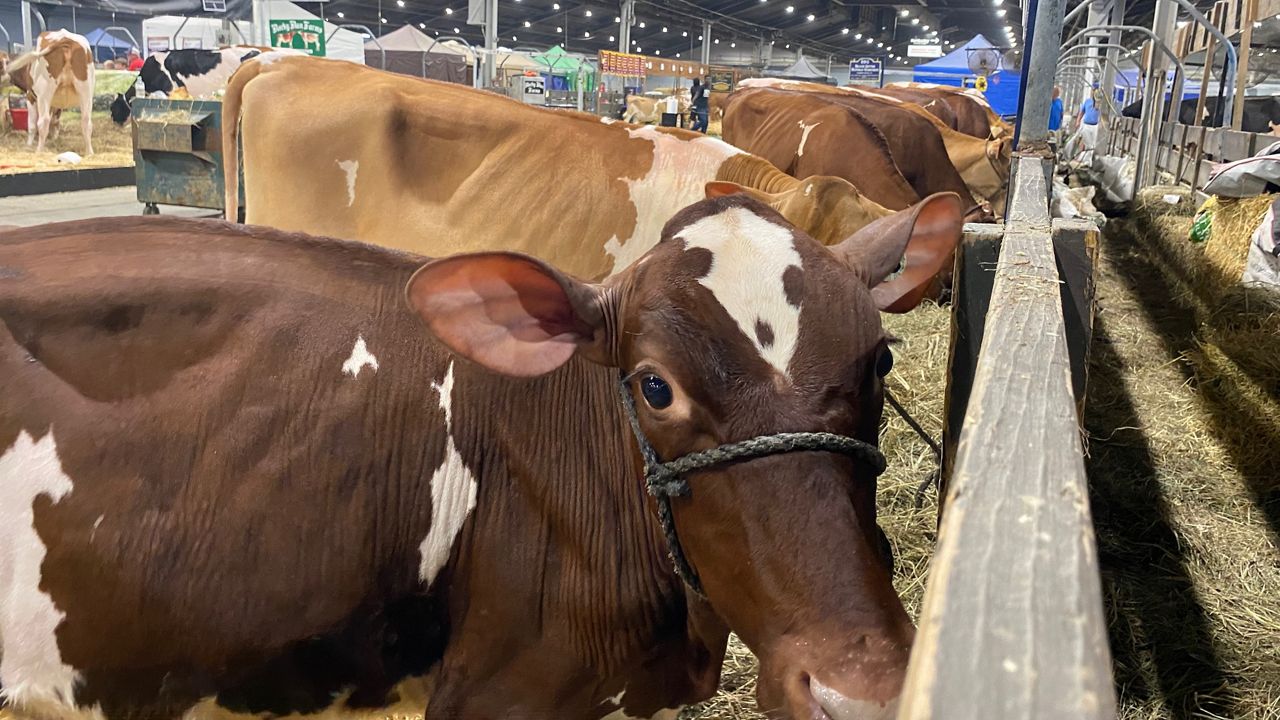LOUISVILLE, Ky. — Showing cattle is a family tradition in the Branstetter family.
“It’s more like a hobby. You know people pull trucks, race cars, we show cattle,” livestock exhibitor Bart Branstetter said.

“My grandfather started, my dad started showing, and then me and my sister both as soon as we got of age, so we don’t know any better. We’ve been here our whole lives,” Branstetter said. “So I’m 42, so I guess I’ve been here 42 years. I’ve never been to the fair.”
With the recent news of a new disease carried by the Asian longhorn tick that has since killed cattle in two Kentucky counties (Hart & Fleming), it has raised some questions among farmers as the Kentucky Department of Agriculture is warning farmers of the emerging risk.
Dr. Kerry Barling, the Deputy State Veterinarian of Kentucky, ensures his team is taking the appropriate measures and that starts before the cattle ever enter the barn.
“The private practitioner, here when we look at their CVI as well as look into the trailer and again when they are unloaded so at least 3 health checks to get into the barn,” Dr. Barling said.
Once the cattle are unloaded, Dr. Barling and the state veterinarian team will do one more inspection before cattle are cleared.
“Looking for signs of illness, difficulty breathing, right now there’s a tick concern so we’re really looking for a presence of ticks,” Dr. Barling said. “It’s good these animals are clipped because with short hair, if there’s a tick presence we can visually see it.”
The news of the new disease causes no concerns for Branstetter.
“We have a lot of people that come in from out of state and they always ask why is Kentucky so strict? They don’t understand that Kentucky, we’re the largest beef cattle state east of the Mississippi, our beef and dairy industry are pretty large and we would hate to jeopardize anything that could shut down those borders import or export,” Branstetter said.
As the state veterinarians continue to make observations and monitor cattle in the barn daily before their departure.
“So the major goal is that we get healthy animals in here to start with and that when this thing is all over and they are dismissed, the animals from the event, that they are all healthy leaving,” Dr. Barling said.
Dr. Kerry Barling told Spectrum News 1 that the Kentucky State Fair also cleans and sanitizes the barn between the dairy cattle leaving and the beef cattle coming in to prevent any type of illness or disease from being spread.



